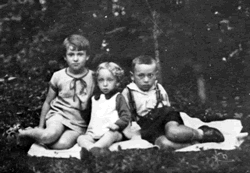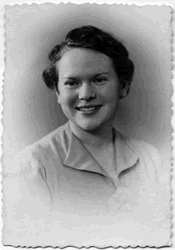Henrietta Diament Nee leszczynski

1. Henrietta and her brothers in 1929

2. Henrietta' husband to be with friends in 1937

3. Henrietta and he husband to be in 1938 (with friends)

4. Henrietta in 1939
.
Taken from;
http://www.tennesseeholocaustcommission.org/livingon/biographies/survivors.php?all=Survivor&Submit=Submit
Memphis, Tennessee
Born: 1918 Lódz, Poland
Survivor: Warsaw and Radom ghettos; Majdanek, Auschwitz, and
Bergen-Belsen Concentration Camps
"I do not have words to express the despair and horror of those years
in the ghetto, but I remember so well how wonderful it was to be there
at the uprising of the Jewish people," recalls Henrietta Diament. "We
finally came to life."
During the Warsaw Uprising in the spring of 1943, residents of the
Warsaw ghetto resisted its liquidation for four months. Young Jewish
men and women, poorly armed and facing a German force three times as
large, made a desperate and valiant attempt to fight back.
When the Germans ordered Henrietta's parents into the Lódz ghetto,
they sent their children to Warsaw to live with relatives. Henrietta's
fiancé left his family to join her. They were married soon after, then
forced into the Warsaw ghetto along with Henrietta's brother. Their
father died of starvation in the Lódz ghetto; their mother perished in
Auschwitz in 1944. Henrietta states, "What I remember most about
living in the Warsaw ghetto was seeing children dead in the streets. I
also remember being hungry. I was hungry all the time for years." But
she never lost faith: "If I lost hope, I lost everything."
She and her husband were deported to Majdanek concentration camp and
separated. She recalls going to Radom ghetto and says, "then I was
sent to Auschwitz, where I lived for over a month. One day we were
stripped of our clothing and walked through the streets." In November
1944 the camp was evacuated. "We marched all the way from Poland to
Bergen- Belsen," she says. "My group was young and most of us made
it." Liberation came in April 1945. Three weeks after Henrietta
reunited with her sister in Belgium, her husband, Stéfan, showed up at
her door.